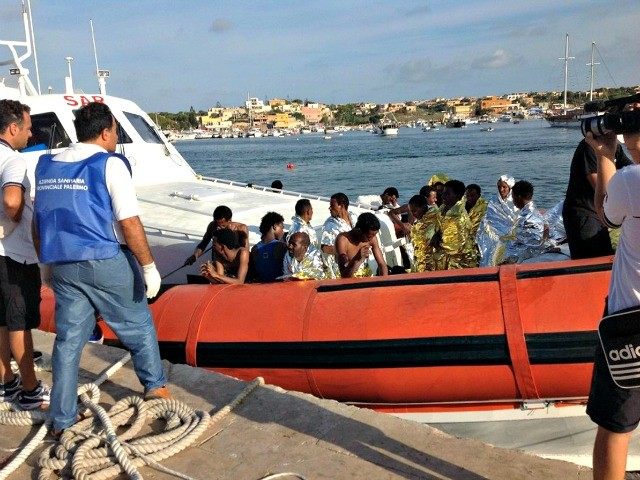ROME, Italy– An extraordinary European summit on immigration will propose surgical military strikes to destroy human traffickers’ boats in Africa prior to their use, as well as the doubling of resources for the operations coordinated by Frontex, Triton, and Poseidon for 2015 and 2016, according to the ANSA Italian news service.
The meeting is taking place on Thursday in Brussels, convened by Italy to find a common line on immigration, after the tragic shipwreck off the coast of Libya.
Italian Prime Minister Matteo Renzi launched his own media strike Wednesday, publishing an op-ed in the New York Times outlining his priorities for the meeting just one day before the encounter.
In his letter, Renzi says that Italy is doing all it can, whereas the “international community’s response has been insufficient,” beginning with a lack of financial engagement. Renzi calls the European Union’s budget on the Triton operation for sea and air patrolling of the Mediterranean “dramatically inadequate” and says that the EU “must start by allocating the appropriate resources.”
Noting the effectiveness of European Union naval operations in fighting piracy in the Horn of Africa, Renzi suggests a similar initiative against human trafficking in the Mediterranean. “Trafficking vessels should be put out of operation,” he wrote. “Human traffickers are the slave traders of the 21st century, and they should be brought to justice.”
He also called for more international officials “on the ground in Africa” to deal directly with migration issues. “And we need to be able to effectively transfer asylum seekers from one European Union country to another, based on where they can get the best protection,” he said.
Renzi further proposes that since the dreadful conditions in Africa are effectively driving its people away, a serious investment must be made in Africa’s future as well.
“Advanced economies, starting with the European Union, must invest more, both in political and in economic terms, in the growth, development and stability of the African continent. Africa’s future ultimately represents our own,” he said.
The Prime Minister also noted that the problem for Europe is not only the astronomical rise in immigration, but the very real risk of terrorism as well. “Not all passengers on traffickers’ boats are innocent families,” he said.
Renzi underscored the central position of Libya in the present crisis, noting that some “90 percent of the migrants reaching Italian ground pass through that country.” Libya, he said, “is prey not only to endemic instability but also to international terrorism. The Islamic State operates there, adding to the chaos of civil war.”
In a parallel media press, Italian Defense Minister Roberta Pinotti urged the European Union on Wednesday to consider military intervention against traffickers.
“We know where the smugglers keep their boats, where they gather,” she said on Italian television.
Libyan officials reacted strongly to the Italian proposal, voicing their opposition to action on Libyan soil. “The government in Tripoli would never accept that Europe bombard alleged bases of human traffickers,” said Foreign Affairs Minister for of the government of Tripoli, Muhammed el-Ghirani.
Ghirani claimed that no one from Europe has consulted Tripoli on these actions, while Europe itself has repeatedly stated it does not recognize the government in Tripoli. “How will you know if you hit an innocent or a smuggler?” he asked.
“We have been doing our best to get Europe to cooperate with us to deal with illegal immigration but they keep telling us we’re not the internationally recognized government. Now they cannot just decide to take this action, they have to speak to us,” he said.
But Italy seems resolved that the situation has already gone too far and more serious measures must be adopted.
“Human traffickers must be opposed with all possible might and force,” said the President of the Italian Republic, Sergio Mattarella, on Thursday during an official visit in Zagreb.
“It is unacceptable for the Mediterranean to become a large graveyard, a burial place for those seeking a better life and to escape famine,” he said.
Follow Thomas D. Williams on Twitter @tdwilliamsrome

COMMENTS
Please let us know if you're having issues with commenting.